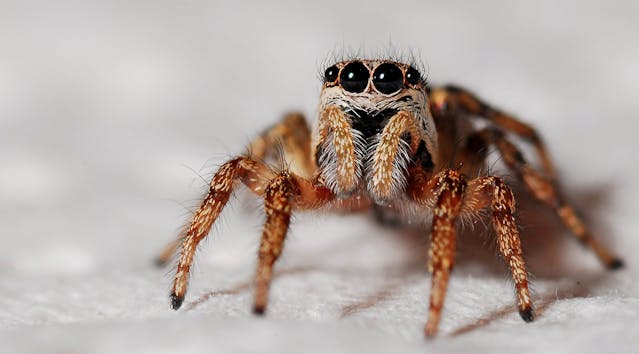Spiders often evoke mixed feelings. While some people appreciate their role in controlling pests, others are wary of their presence in homes and gardens. If you’re a Washington State resident, you’ve likely encountered a variety of these eight-legged arachnids. But how much do you really know about them?
This guide explores the world of spiders in Washington, helping you identify common species, understand where they live, manage their presence, and appreciate their ecological benefits. Whether you’re a gardening enthusiast or a homeowner trying to keep spiders at bay, this post will offer valuable insights to foster informed coexistence.
Identifying Spiders in Washington
Before reacting to a spider, it’s helpful to understand what kind you’re dealing with. Washington State is home to a wide variety of spider species, most of which are harmless. Here’s a closer look at some of the common ones you might encounter.
Common Harmless Spiders
- Orb-Weaver Spiders
Recognized by their impressive wheel-shaped webs, orb-weavers are common in gardens and on fences. These spiders are non-aggressive and work tirelessly to catch flying insects.
- Jumping Spiders
Small and often colorful, jumping spiders are known for their excellent vision and energetic movements. They don’t spin webs but actively hunt and pounce on their prey. While they might look intimidating, they are harmless to humans.
- Cellar Spiders (Daddy Long Legs)
Found in basements or sheds, cellar spiders have long, delicate legs and often build messy cobwebs in dark corners. These spiders help keep smaller insects under control and rarely bother people.
Harmful Spiders to Watch Out For
- Hobo Spiders
Hobo spiders are brown with a distinct herringbone pattern on their abdomen. Although their bites were once considered harmful, recent studies suggest their danger to humans has been overstated. However, caution is still advised.
- Black Widow Spiders
The black widow is the most venomous spider in Washington. Easily identifiable by its shiny black body and red hourglass marking, it’s typically found in garages, woodpiles, or crawl spaces. While their bites can be medically significant, black widows are shy and only bite when threatened.
Spider Habitats in Washington
Understanding where spiders live can help you manage their presence in your surroundings. In Washington, spiders occupy various habitats, both indoors and outdoors.
Indoors
- Basements and Crawl Spaces
Dark, humid areas like basements, attics, and crawl spaces are perfect hiding spots for spiders such as cellar spiders and hobo spiders.
- Windows and Corners
Orb-weaver and house spiders often build webs near windows or in the corners of ceilings where they can trap small flying insects.
Outdoors
- Gardens
Garden spiders, orb-weavers, and wolf spiders thrive among shrubs, flowers, and vegetable plants, where an abundant food supply exists.
- Woodpiles and Debris
Sheltered, undisturbed areas, such as woodpiles, rock crevices, or compost bins, attract spiders that enjoy dark and covered spaces.
Managing Spiders Naturally
Spiders generally prefer to avoid human contact, but if you’re looking to limit their presence, here are some natural control methods to help.
Tips for Spider Prevention
- Declutter Your Home
Reduce spider hiding spots by keeping storage items tidy and organized. Use sealed storage bins instead of cardboard boxes.
- Seal Entry Points
Inspect your home for gaps in doors, windows, and foundations, and seal small openings where spiders may enter.
- Vacuum Regularly
Vacuuming not only removes webs but also eliminates any insects spiders feed on.
Natural Repellents
- Cedar and Peppermint Oil
Spiders dislike the smell of cedar and peppermint. Use cedar blocks in storage areas or spray diluted peppermint oil along windowsills and corners.
- Vinegar Solution
A mixture of vinegar and water can act as a natural deterrent. Spray it around areas where spiders frequently appear.
The Benefits of Spiders in Washington
While not everyone loves sharing their space with spiders, these creatures play a vital role in maintaining ecological balance.
- Natural Pest Control
Spiders help control the population of insects like mosquitoes, flies, and aphids, reducing the need for chemical pesticides.
- Support for Biodiversity
By preying on various pests, spiders contribute to a healthier ecosystem. Small mammals, birds, and even other spiders rely on them for food.
- Pollination Assistance
While spiders do not directly pollinate, their webs can trap small insects near plants, indirectly supporting pollination processes.
Encouraging Responsible Coexistence
Spiders might not be everyone’s favorite houseguest, but they are vital contributors to the environment. Instead of killing them outright, consider relocating non-dangerous spiders outdoors or adopting natural deterrents if necessary.
If you encounter a potentially harmful spider, such as a black widow, it’s wise to contact a pest control professional. For non-lethal methods, tools like jar traps and eviction sprays can provide humane alternatives.
For homeowners keen on maintaining a spider-friendly garden, integrating native plants and avoiding excessive pesticide use can encourage natural pest control while keeping your living spaces spider-free.
Understanding Spiders in Washington Leads to Better Harmony
Spiders in Washington are both fascinating and functional. By understanding their behaviors, habitats, and ecological significance, you’re better equipped to coexist with these often-misunderstood creatures.
For more detailed insights about pest control, wildlife gardens, and natural ways to manage your home, be sure to explore our other resources and guides.



Pingback: Deer Season in Washington | Guide for Hunting Success - EXST